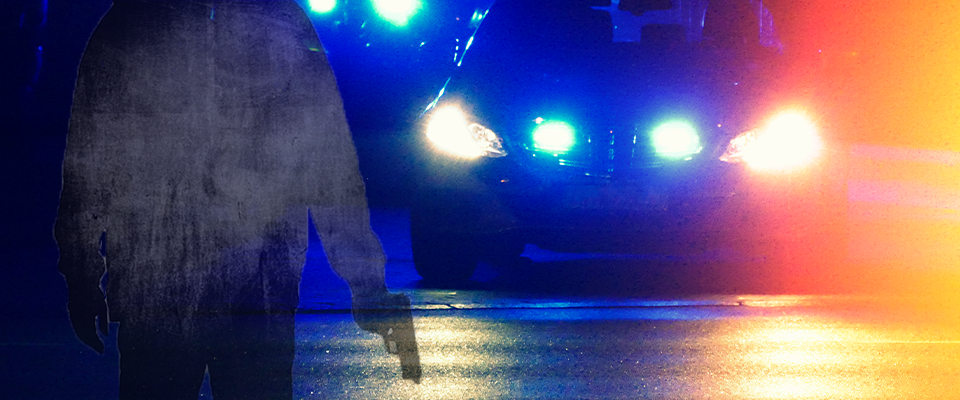When Richard Livingston Jr. got a call from a relative in January 2015 telling him that his 20-year-old son Richard Dejion Livingston III, known as Rickey, had been murdered, he raced to the county morgue to confirm it for himself. He hadn’t heard anything from law enforcement, and he refused to believe it until he got official word. After banging desperately on a door for 45 minutes, he was told that he wouldn’t be let in and that he’d have to go to the police department for information. At the station—where he showed up hysterical—police confirmed that his son had, in fact, been killed hours earlier in a gruesome double homicide. His son’s girlfriend had also been killed.
For Livingston, a 49-year-old father of seven—including his son Rickey—the pain of losing his oldest child was hard enough. “I lost like 25 pounds. I didn’t eat for three days,” he says. His wife and children struggled as well. But the indifference with which he says they were treated by police after his son’s murder only compounded their grief.
“Rent is still due next month. Groceries still have to be bought. Family members usually end up falling back into even more debt after the loss of a loved one.”
“I don’t even know how to give it words,” says Livingston. “It’s like you’re just crawling on broken glass all the time. It’s not that it’s ever going to get better. You just deal with the pain.”
Livingston’s family is among 13 Oakland families whose experience of losing a loved one to homicide—and dealing with law enforcement in the aftermath—is documented in a recent report, “Living with Impunity,” from Berkeley Law’s International Human Rights Law Clinic (IHRLC). The report exposes an epidemic of unsolved homicide cases in Oakland and the often neglectful, even abusive treatment that grieving families experienced on the part of the presiding officers. In the last decade, 76 percent of the city’s homicide victims were black, yet the clearance rate for cases involving black victims is dismal. Police made arrests in just 40 percent of Oakland homicides involving black victims, compared to 80 percent of cases involving white ones. The surviving relatives of black victims also often experience discriminatory and disrespectful treatment from law enforcement during the investigation, according to the report, and often are denied support from the state.
“The systemic failure to prevent violence, investigate, and provide support and assistance to family members without discrimination in Oakland is arguably a violation of international human rights law,” writes the report’s author Roxanna Altholz, co-director of the IHRLC.

For the first several months after his son passed, Livingston says, the police kept in touch about their investigation into his murder. But after six months or so the communication stopped. In the years since, any new information about his son’s case, Livingston says, has come from other people. About a year after his son was killed, he heard from a relative of his son’s girlfriend that there was a 911 tape connected to the shooting. When Livingston went to the police about it, he was told it was part of the open investigation and therefore confidential under department policy. In January, after he reached out to the department to get an update on the case, he was told that his son’s case had been officially designated a cold case by investigators more than a year earlier.
Police should be “contacting people formally and letting people know what’s going on. Status changes: If somebody’s been arrested. If there’s new leads. If it turns into a cold case,” Livingston says. “I can’t really say they were rude to me or treated me bad,” he adds. “It was just—nothing.”
Livingston is married; he’s employed as a social worker for the city of Oakland and his wife worked at a telecommunications company at the time of his son’s murder. Only two of their seven children still live at home, so their son’s passing didn’t impose a significant economic burden. For many families, though, in addition to the emotional toll, the loss can have far-reaching financial effects, especially if the victim was a breadwinner. “A lot of our clients are working class. So you look at the fact that they just put in what they had [on a funeral], but rent is still due next month. Groceries still have to be bought next month. Your car note still needs to be paid next month. Your PG&E. Your water bill,” says Marilyn Harris, founder of Khadafy Washington Project, an initiative of the Oakland-based anti-gun violence organization Youth Alive. Harris founded the initiative after her only son was murdered in Oakland in 2000. “Family members usually end up falling back into even more debt after the loss of a loved one.”
Families that need financial support often can’t get it due to ineligibility under the state’s rules for compensation. If your loved one is judged to have been partly responsible for their own death, for example, you can be denied aid from the state’s California Victim Compensation Board, which provides financial assistance to families in the aftermath of a murder. The assistance offered to families that do qualify often isn’t enough to address long-term needs—like relocating to avoid further violence. And sometimes families don’t even know what kind of support is available to them—or who to ask for help.
The report from the IHRLC makes recommendations to the Oakland Police Department for how to address the injustices that families impacted by gun violence experience. Among them: collaborating with community groups to connect family members with services such as financial assistance and mental health resources. The report also recommends developing a clear protocol for communicating with families in the immediate aftermath of a murder and as an investigation proceeds—a protocol that should require, among other things, allowing families access to their relative’s case file.
In a statement, a spokesperson for the Oakland Police Department said the department “is committed to reducing the number of lives lost to violence each year” and that it “disagrees” with the report’s findings. The Department also points to a 2019 report from the Giffords Law Center that called Oakland “A Case Study in Hope” and cited a nearly 50% reduction in homicides and nonfatal shootings since 2012.
Livingston has fond memories of his son Rickey. “He had an infectious laughter and good-heartedness. He was so low-key. He didn’t like drama or mess, and no matter what was going on around him, he just always stayed smooth,” Livingston says. When he passed, he left behind an infant son. “He loved being a dad. It’s messed up because he was in that phase of life when he was really transitioning and trying to figure some stuff out.”
Livingston says one of his biggest priorities now is being a grandparent to Rickey’s young son who, he says, is approaching an age where he’ll have more questions about his father.
“There’s going to come a day when he says ‘What happened?’ and ‘Why?’ I wouldn’t even know what to tell him,” Livingston says.
He’s still waiting on an answer for himself.



















